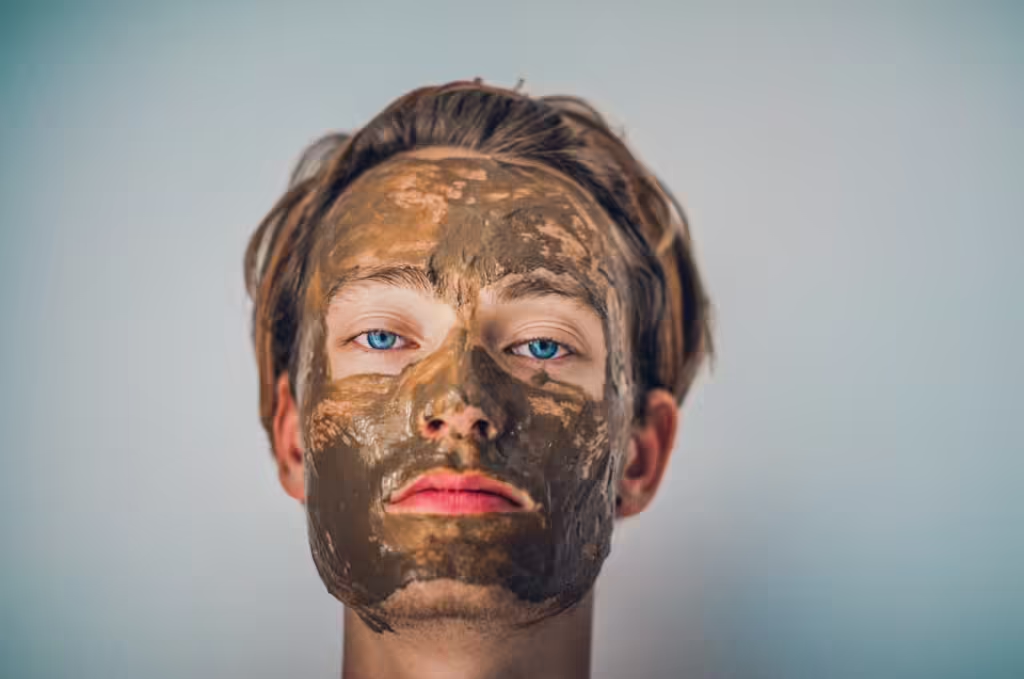Steps to Achieve Healthy and Clear Skin
Taking care of your skin is important for everyone, including men. A simple and consistent skincare routine can help you maintain healthy and clear skin. Here is a guide to help you get started.
1. Cleanse Your Skin
Cleansing is the first step in any skincare routine. It helps to remove dirt, oil, and sweat from your skin. Use a gentle cleanser that suits your skin type. Clean your face twice a day, in the morning and before bed. Avoid using hot water as it can dry out your skin. Lukewarm water works best.
2. Exfoliate Regularly
Exfoliating helps to remove dead skin cells, making your skin look brighter. Use a gentle exfoliator once or twice a week. Avoid scrubbing too hard as it can irritate your skin. For sensitive skin, choose a mild exfoliant.
3. Use a Toner
Toners help to balance the pH level of your skin. They can also remove any remaining traces of dirt and sweat. Choose a toner that is alcohol-free to avoid drying out your skin. Apply the toner with a cotton pad after cleansing your face.
4. Apply Serum
Serums are concentrated products that target specific skin concerns. For example, if you have dark spots, choose a serum with vitamin C. If you have dry skin, look for a hydrating serum. Apply a few drops of serum to your face and gently massage it in.
5. Moisturize Your Skin
Moisturizing is important to keep your skin hydrated. Choose a moisturizer that suits your skin type. For oily skin, use a lightweight, oil-free moisturizer. For dry skin, choose a richer, hydrating cream. Apply the moisturizer twice a day, after cleansing and applying serum.
6. Use Sunscreen
Sunscreen helps to protect your skin from harmful UV rays. Choose a sunscreen with SPF 30 or higher. Apply it every morning, even on cloudy days. Reapply if you are spending a lot of time outdoors. Sunscreen can help prevent sunburn, premature aging, and skin cancer.
7. Treat Specific Skin Concerns
If you have specific skin concerns like acne, dark spots, or wrinkles, use treatments that target these issues. For acne, look for products with salicylic acid or benzoyl peroxide. For dark spots, choose products with ingredients like niacinamide or hydroquinone. For wrinkles, look for products with retinol or peptides.
8. Stay Hydrated
Drinking enough water is important for your skin health. When you are hydrated, your skin is more likely to stay healthy and clear. Make sure to drink plenty of water throughout the day.
9. Eat a Healthy Diet
What you eat can affect your skin. Eating a diet rich in fruits, vegetables, and healthy fats can help keep your skin clear and glowing. Foods high in antioxidants, like berries and green leafy vegetables, can be particularly good for your skin.
10. Get Enough Sleep
Sleep is important for your overall health, including your skin. Make sure you are getting enough sleep each night to help your skin repair and rejuvenate. Aim for 7-8 hours of sleep per night.
11. Avoid Touching Your Face
Touching your face can transfer dirt and bacteria to your skin, leading to breakouts. Try to avoid touching your face throughout the day. If you need to touch your face, make sure your hands are clean.
12. Keep Your Pillowcase Clean
Your pillowcase can collect dirt, oil, and bacteria from your face and hair. Make sure to change your pillowcase regularly, at least once a week. This can help prevent breakouts and keep your skin clear.
13. Use a Face Mask
Using a face mask can give your skin an extra boost. Choose a mask that targets your specific skin concerns. For example, a hydrating mask for dry skin or a clay mask for oily skin. Use a face mask once or twice a week for the best results.
14. Avoid Overusing Products
Using too many products can overwhelm your skin and cause irritation. Stick to a simple routine with a few essential products. Avoid trying too many new products at once. Give each product time to work before introducing a new one.
15. Be Consistent
Consistency is key to achieving healthy and clear skin. Stick to your skincare routine and be patient. It can take time to see results, but with regular care, your skin will improve.
16. Exercise Regularly
Exercise is good for your overall health, including your skin. It helps to improve blood circulation and can give your skin a healthy glow. Make sure to cleanse your skin after exercising to remove sweat and prevent breakouts.
17. Manage Stress
Stress can have a negative impact on your skin. Finding ways to manage stress, such as through exercise, meditation, or hobbies, can help improve your skin health. Practice self-care and take time to relax and unwind.
18. Avoid Smoking and Limit Alcohol
Smoking and excessive alcohol consumption can damage your skin. Smoking can cause wrinkles and make your skin look dull. Alcohol can dehydrate your skin and make it look tired. Avoid smoking and limit your alcohol intake to keep your skin healthy.
19. Protect Your Skin from Harsh Weather
Cold weather, wind, and dry air can take a toll on your skin. Protect your skin by wearing a scarf, hat, and gloves when you go outside in cold weather. Use a humidifier at home to add moisture to the air.
20. See a Dermatologist
If you have persistent skin concerns, consider seeing a dermatologist. They can provide professional advice and recommend treatments that are suitable for your skin type. Regular check-ups with a dermatologist can help you maintain healthy skin.
Following these steps can help you achieve and maintain healthy and clear skin. Remember, everyone’s skin is different, so it’s important to find what works best for you. Be patient and consistent with your routine, and your skin will thank you.


